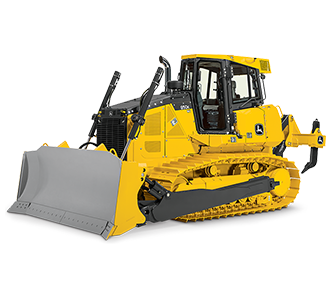Important Tips for Safely Leasing Equipment for Your Building And Construction Jobs
Making certain the safety and security of your building projects is paramount, and a vital facet of this is the safe and correct usage of leased equipment. The procedure of leasing construction equipment entails greater than simply selecting the right tools for the work; it additionally involves a series of vital steps that have to be complied with to guarantee the health of those on-site and the successful conclusion of the project. By sticking to vital tips and standards, you can not only alleviate potential threats however also enhance the efficiency of your building and construction ventures.
Tools Assessment
Regular devices inspections are necessary to make certain the security and efficiency of construction jobs. By conducting routine and thorough assessments of devices, construction firms can determine prospective problems before they escalate, thus protecting against crashes and costly hold-ups. Inspections must cover all aspects of the tools, including architectural stability, performance, and security functions.
Throughout an evaluation, it is essential to inspect for indicators of wear and tear, such as rust, cracks, or leakages, which might show underlying troubles. In addition, testing the equipment's functionality, such as controls, brakes, and security systems, makes sure that it runs as planned. Any kind of disparities or breakdowns should be promptly dealt with and dealt with to preserve ideal performance and security.
Additionally, documenting evaluation results and maintenance tasks is essential for tracking the tools's problem gradually. This info can help in scheduling normal upkeep, determining patterns of problems, and making notified decisions regarding devices substitute or repair services. Eventually, prioritizing equipment examinations adds to a much safer workplace and improves the overall performance of building and construction jobs.
Security Training
Effective safety training programs play a vital function in reinforcing the importance of tools assessments and guaranteeing the well-being of construction task workers. Safety training furnishes workers with the essential understanding and skills to run machinery properly, identify prospective hazards, and react to emergencies promptly. By informing employees on ideal methods, safety and security methods, and regulative requirements, training sessions help in reducing the chance of mishaps and injuries on construction sites.
Comprehensive security training covers a variety of subjects, including individual safety devices (PPE) use, devices procedure treatments, emergency situation procedures, and risk recognition. Training must be continuous to address new threats, freshen existing understanding, and include any devices updates. It is vital for all construction personnel, from drivers to managers, to join regular security training sessions to keep a culture of safety and caution on the job site.
Purchasing security training not just secures employees from injury but also contributes to enhanced efficiency, minimized downtime, and boosted task end results. heavy equipment rental. Focusing on security with training demonstrates a commitment to the well-being of employees and the success of building projects
Rental Agreement Review
Performing a comprehensive testimonial of rental arrangements is important for making sure clear terms and assumptions when renting out equipment for building jobs. Make certain that the agreement includes a comprehensive checklist of the equipment being rented out, its condition at the time of rental, and any type of pre-existing damages. By completely evaluating the rental contract, you can avoid misconceptions, disputes, and unexpected expenses throughout your building task.
Correct Maintenance Practices
Executing an organized maintenance regimen is important for making the most of the effectiveness and life expectancy of leased building devices. Normal upkeep not just makes sure the devices functions ideally however likewise reduces the threat of unanticipated malfunctions during your task. Below are some crucial upkeep practices to adhere to when leasing construction equipment:
Arranged Examinations: Conduct comprehensive pre- and post-operation checks to recognize any possible issues before they escalate. This consists of examining for leaks, damaged components, and guaranteeing all safety attributes are intact.
Cleansing and Lubrication: Keep the devices clean from dirt, particles, and other impurities that could impact its efficiency. Regularly lube relocating parts to stop deterioration.

Comply With Manufacturer Standards: Follow the manufacturer's maintenance referrals outlined in the manual to make certain proper treatment and procedure of the tools.
Emergency Preparedness
In anticipation of unexpected situations that may emerge throughout building and construction jobs, it is crucial to develop a detailed emergency situation preparedness strategy. Construction sites are inherently vulnerable to accidents and unforeseen occasions, making it critical for project supervisors to focus on safety and positive procedures.

Final Thought
In conclusion, executing comprehensive devices examination, safety and security training, rental contract review, correct maintenance practices, and emergency situation preparedness are essential actions for securely renting equipment for construction tasks. By complying with these guidelines, construction firms can make certain the safety and security of their employees, protect against crashes, and decrease downtime on tasks. It is crucial to focus on safety and compliance when renting tools to maintain heavy equipment rental a productive and efficient workplace.
